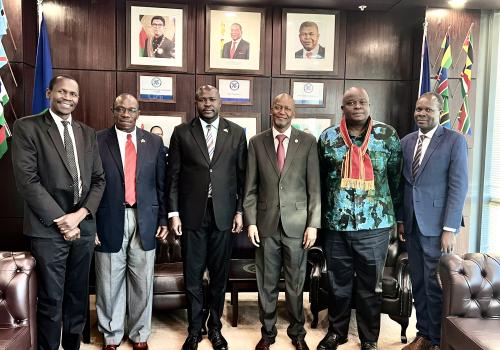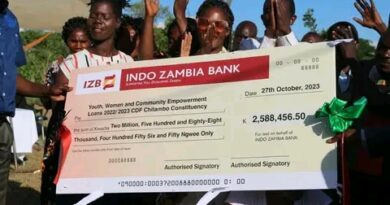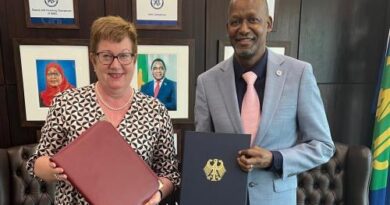SADC Executive Secretary Welcomes Uganda’s Ambassador-designate
The Executive Secretary of the Southern African Development Community (SADC), His Excellency Mr. Elias M. Magosi, officially received letters of credence from His Excellency Mr. Paul Amoru, the newly appointed Ambassador and Permanent Representative-designate of Uganda to SADC. Ambassador Amoru also holds the position of Uganda’s non-resident High Commissioner to Botswana.
Ambassador Amoru’s appointment reaffirms Uganda’s commitment to the core values of SADC, including unity, regional integration, and sustainable development across Africa. As an active member of both the East African Community (EAC) and the Common Market for Eastern and Southern Africa (COMESA), Uganda continues to play a crucial role in advancing the African agenda, particularly in peace, security, and development.
In his remarks, H.E. Magosi congratulated Ambassador Amoru on his appointment and expressed appreciation for Uganda’s constructive involvement in promoting peace and stability, especially in efforts to stabilize the eastern Democratic Republic of Congo (DRC), which has been impacted by the ongoing conflict with the M23 rebel group.
“The situation in the DRC is critical for both SADC and the EAC. I am encouraged by Uganda’s engagement through the EAC to create the conditions for constructive dialogue and a comprehensive peace agreement,” H.E. Magosi stated.
He further acknowledged Uganda’s vital role within the SADC-EAC-COMESA Tripartite Free Trade Area (FTA), which significantly contributes to the African Union’s broader objectives of fostering economic integration, sustainable development, and poverty reduction in the Eastern and Southern African regions.
Ambassador Amoru expressed gratitude for the warm welcome and reaffirmed Uganda’s commitment to strengthening diplomatic relations with SADC. He emphasized Uganda’s dedication to Pan-Africanism and the pursuit of innovative, home-grown solutions to shared challenges.
Ambassador Amoru also outlined key areas for future collaboration, including conflict resolution, economic empowerment, youth and women’s advancement, combating HIV, and addressing climate change—pillars essential for achieving a prosperous and resilient Africa.



